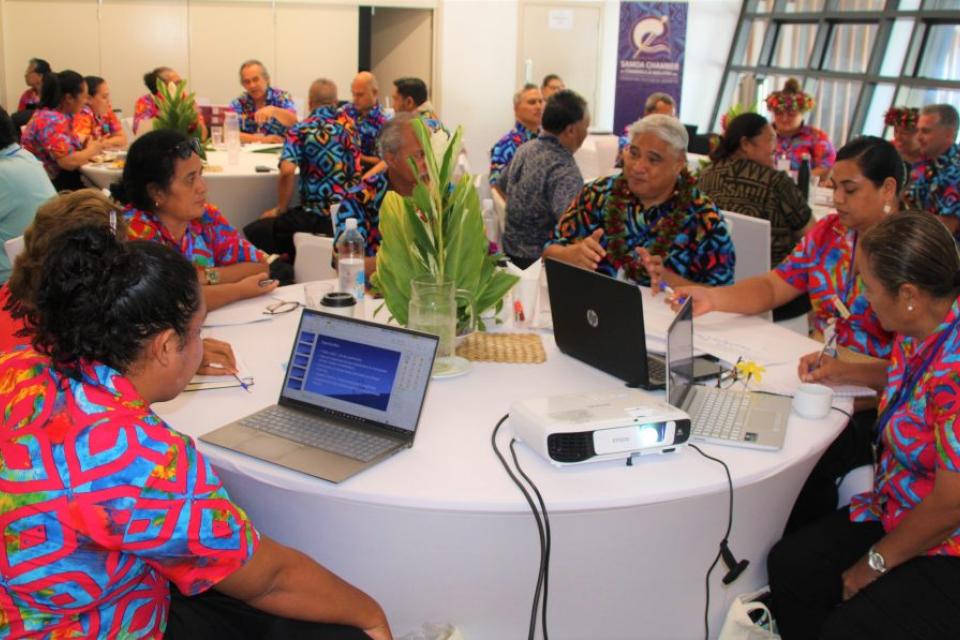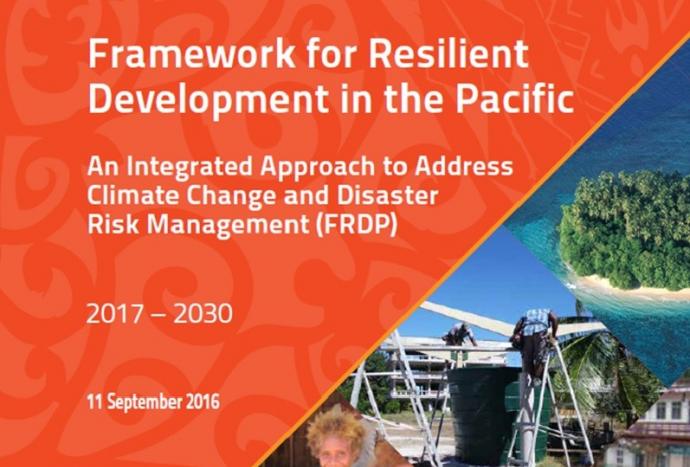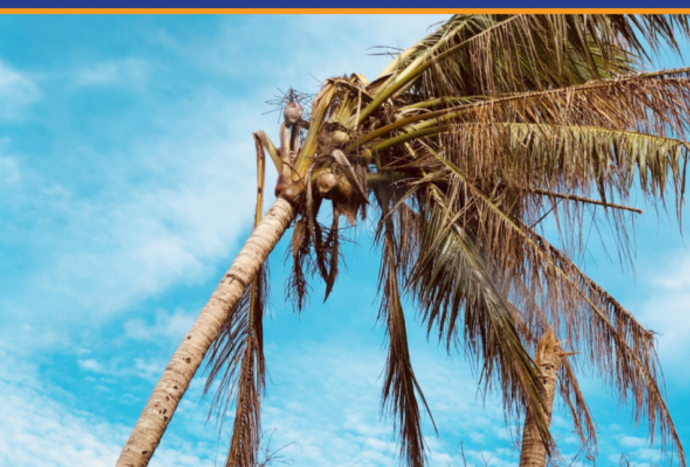Samoa Climate Financing Workshop Eyes Private Sector Opportunities

Private sector partnerships on climate resilience have gained momentum after Samoa’s Polynesia Sub-Regional Private Sector Workshop. The 27-29 September workshop focused on improving private sector access to climate finance, and stronger public-private partnerships.
This workshop brought together representatives from the Government and the private sector in Cook Islands, Niue, Samoa, Tonga, and Tuvalu. They were joined by regional and development partners and climate financing institutions.
Workshop participants recognised a key challenge faced by micro, small to medium enterprises in the region is access to climate finance. The workshop provided an opportunity for stakeholders to better understand the specific needs of the private sector. The challenges of accessing climate finance including practical financing and support options targeted for the Pacific private sector were also key discussion areas.
Acting Secretary General of the Pacific Islands Forum, Dr Filimon Manoni in his opening remarks, stated that the 2050 Strategy for the Blue Pacific Continent provides an opportunity to improve and strengthen our development approaches including our engagement as public and private sectors.
He stated that there is a need to increase the engagement of our private sector as contractors and service deliveries for governments on several adaptation and mitigation initiatives.
Chief Executive Officer of the Niue Chamber of Commerce, Ms Catherine Papani agreed that it has always been difficult for the private sector to access funding.
“Climate change is happening now, and some businesses will be gone in the next five years by the time funding can be accessed. It is time to act now and there is a need to think about the next generation and the future impacts of climate change.”
Access to finance and other technical support opportunities are necessary to ensure countries are prepared for climate change and disasters. Including private sector helps to ensure survival of local businesses and communities.
Ms Michelle Macdonald, Samoa Chamber of Commerce, and Industry (SCCI) President said a lot of funding requires governance and compliance. This requires regional bodies such as the Pacific Islands Private Sector Organisation to use their collective voice to ensure climate financing is accessible.
“A lot of our country priorities for climate change in the region are reflected in the 2050 Strategy for the Blue Pacific Continent. The private sector needs to adapt to these priorities as this is where the donors will be coming through.,” she added.
The three-day workshop ended with a tree planting programme organised by the Climate Change Division of Samoa’s Ministry of Natural Resources and Environment (MNRE) at the Vailima Reserve and Botanical Garden.
The workshop was made possible through the Pacific Islands Forum Secretariat in collaboration with Samoa’s Ministry of Finance, SCCI and MNRE, with funding support from the Intra African Caribbean and Pacific (ACP) Global Climate Change Alliance Plus (GCCA+), Pacific Adaptation to Climate Change and Resilience Building (PACRES) Project.
For more information on the PACRES project, please contact Semi Qamese, PACRES Project Manager at semiq@sprep.org



